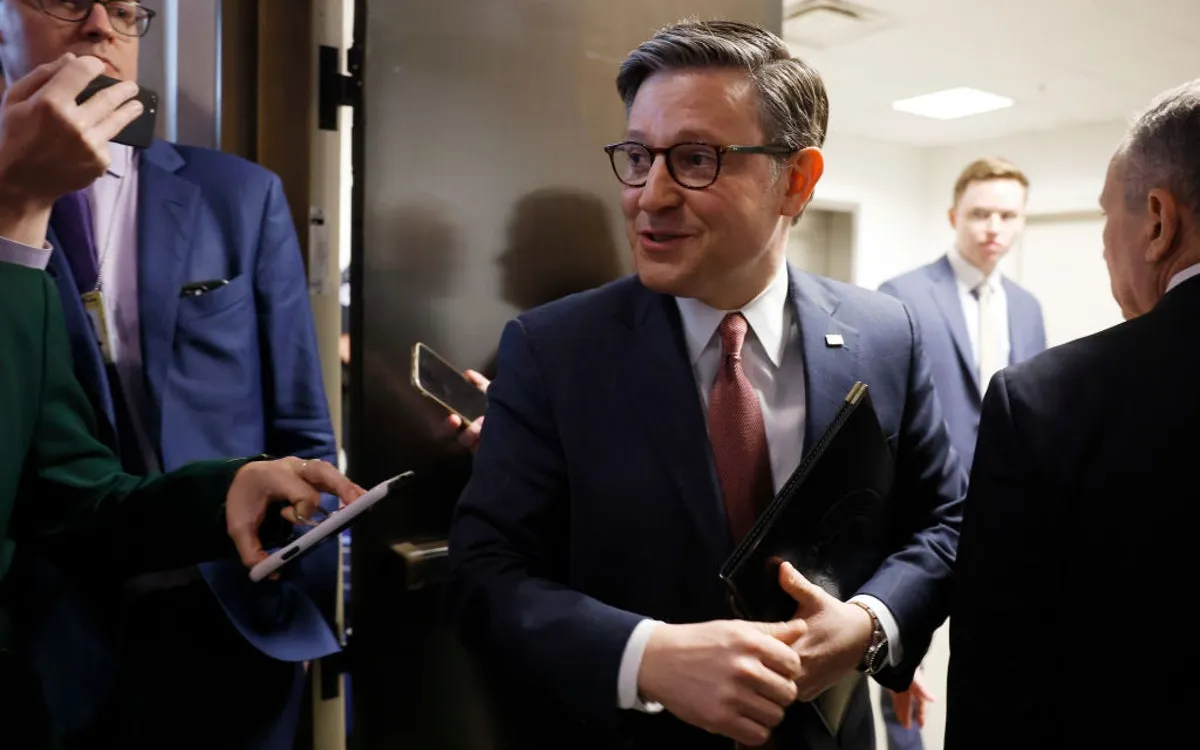
The Republican-controlled House of Representatives voted on Tuesday to adopt a budget framework supported by GOP leadership and President Donald Trump. This strategic move allows Speaker Mike Johnson to maintain his image as a unifying voice among Republicans in the chamber.
Mike Johnson and Texas Rep. Jodey Arrington, the House GOP's Budget Committee Chair, managed to win over several key holdouts within the Republican Party who were initially skeptical, believing the plan insufficient in cutting federal spending. Notably, Kentucky Rep. Thomas Massie was the only Republican to vote against the legislation after others, such as Reps. Victoria Spartz (Indiana) and Warren Davidson (Ohio), eventually aligned with the leadership.
The leadership initially postponed the vote, then reconvened lawmakers over an hour later. The bill was narrowly passed with a vote of 217 to 215. "There's no Plan B. This is the plan we're running," Johnson stated before the bill's passage, emphasizing the commitment to President Trump's America First agenda.
Democrats seized the opportunity to criticize the Republicans' inability to unify behind the legislation, highlighting Johnson's last-minute dealmaking. The framework proposes a substantial $2 trillion cut in federal spending over the next decade, with indications that Medicaid programs will bear significant reductions. "The House Republican budget resolution will set in motion the largest Medicaid cut in American history," warned Minority Leader Hakeem Jeffries.
Other Democrats, such as Colorado Rep. Brittany Pettersen and Congressman Maxwell Frost from Florida, voiced their disapproval, questioning how Republicans could face their constituents after supporting the resolution.
Reports suggest that President Donald Trump played a crucial role by personally calling holdout members like Massie to secure votes. The legislation aligns with Trump's priorities, including increased border security funding and extending the 2017 tax cuts, a significant achievement from his first term.
Speaker Johnson acknowledged Trump's assistance in passing the plan, though the budget framework is far from becoming law. The Senate, with a narrow GOP majority, has signaled the need for adjustments for the framework to gain approval. It remains a foundational step for the actual budget legislation to be crafted in the coming weeks.
This victory for Johnson marks a crucial step in advancing the budget process on his terms, contrasting the approach favored by Senate Budget Committee Chairman Lindsey Graham. The Senate's prior approval of Graham's budget framework, which excluded Medicaid cuts and tax cut extensions, indicates potential challenges ahead.
Tuesday's vote underscores the ongoing influence President Trump holds over House members, especially those who initially opposed the framework but ultimately aligned with leadership efforts.